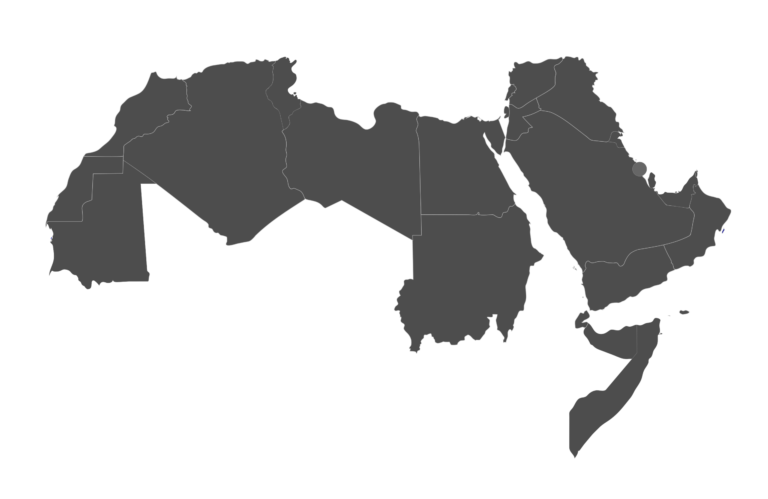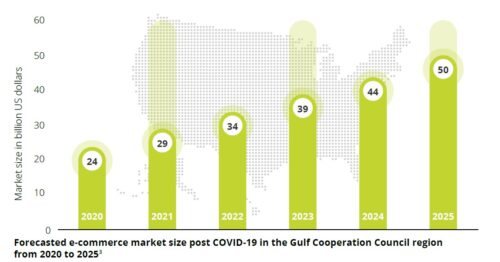
As a Semitic language that belongs to the Afro-Asian language family, Arabic is considered as one of the richest and most complex languages of the world. Arabic is one of the six official languages of the United Nations, since it’s spoken by over 400 million people around the world, while being the official language in around 24 countries. With most Arabic speakers being located in the Middle East and North Africa (MENA) region, estimates are that Arabic-speaking internet users in this region are over 200 million users, which represents around 77% of the MENA region population. Recent researchers also expect the e-commerce market size in the Gulf Cooperation Council (GCC) for example to reach 50 billion USD by 2025.
 Image: (Deloitte)
Image: (Deloitte)
One more unique feature of Arabic language is the duality of usage. This means that Arabic language could be divided into two main types, which are Modern Standard Arabic (MSA) and daily colloquial. While MSA is mainly used in formal contexts, like official documents, news, etc., daily colloquial is used in unofficial communication among individuals and in contexts like daily conversations, marketing and advertising, social media, etc.
This could give us a glimpse on the complex nature of Arabic language and the difficulty it represents when trying to deliver a specific content or message to Arabic-speaking audience. It also gives us a hint on the major challenge that this specific nature represents for localization and e-commerce translation practices that target Arabic-speaking consumers and buyers. Whenever you need to deliver a message or market for a product or a service, it’s not only about the quality of your product or service, it’s also mainly about how to carefully choose the right manner to speak to your audience in order to increase the chances of realizing your goals and generating the targeted actions.
An online e-commerce store, for example, needs different versions for each targeted Arabic-speaking country, according to the locale of the country in question. This could sound a little awkward for someone who does not speak Arabic language and has no idea about Arabic culture. Yet, a linguistic professional who enjoys a deep expertise with Arabic language and culture would explain by stating that sometimes a specific word or expression could be acceptable for the target audience in one Arabic-speaking country, while being totally offensive in another country of subgroup.
This shows us that handling content in Arabic language is of a very intricate nature and requires special skills and expertise that go far beyond linguistic capabilities to cover the cultural and social nuances.
Need an expert advice on how to perfectly handle your content? Reach out to us for an expert consultation.
References:
- https://www.worlddata.info/languages/arabic.php#:~:text=The%20Arabic%20language%20(native%20name,Arabic%20as%20their%20mother%20tongue.
- https://www.un.org/en/our-work/official-languages#:~:text=There%20are%20six%20official%20languages,%2C%20French%2C%20Russian%20and%20Spanish.
- https://www.internetworldstats.com/middle.htm#:~:text=Saudi%20Arabia%2C%20Syria%2C%20United%20Arab%20Emirates%20and%20Yemen.&text=268%2C302%2C801%20population%20estimate%20for%20the,2022%2C%2055.4%25%20penetration%20rate.
- https://www.middlebury.edu/language-schools/blog/which-arabic-dialect-to-learn
- https://www2.deloitte.com/content/dam/Deloitte/xe/Documents/About-Deloitte/mepovdocuments/ME-PoV-issue-41/thriving-e-commerce-landscape-in-the-me_mepov41.pdf
